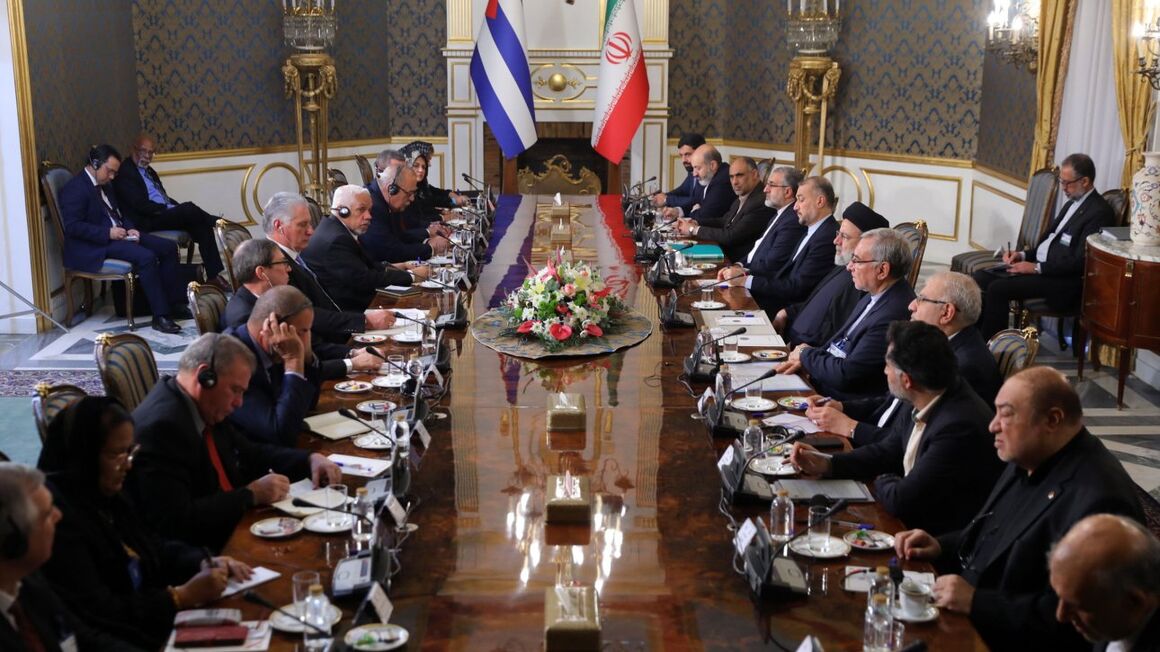He made the statement in a session between high-ranking delegations of Iran and Cuba held during Cuban President Miguel Díaz-Canel’s visit to Tehran.
“Today, the two nations’ interests necessitate the taking of more essential steps toward exchanging experiences,” Raeisi underlined.
The president expressed his satisfaction with the growing relations between Tehran and Havana, describing Díaz-Canel’s visit to Iran, the first after the trip of former president Fidel Castro 22 years ago, as a “turning point” in the two nations 'bilateral ties.
Confrontation with the hegemonic system and support for Palestinian people’s legitimate rights are among the main commonalities of all independent countries, including Iran and Cuba, pointed out Raeisi, adding the two countries have great capacities, which can play an effective role in confronting the U.S. sanctions.
Pointing to Tehran-Havana cooperation in the production of vaccines, including coronavirus vaccine, he said the two countries have made great progress in the fields of science and technology as well as biotechnology and nanotechnology, calling them suitable fields for bilateral cooperation.
Raeisi urged the Iran-Cuba joint commission to follow up bilateral talks and memorandums, emphasizing that the expansion of Tehran-Havana trade and economic cooperation will effectively help neutralize sanctions.
The presidents and high-ranking officials of Iran and Cuba signed seven memorandums of understanding (MoUs) and documents to cooperate in different fields, including the energy sector on Monday.
The two sides also inked a joint statement to deepen their strategic relations Díaz-Canel.
According to the MoUs and documents, Tehran and Havana will cooperate in the fields of energy and mining, science and technology, health, agriculture, communication, and medicine.
Díaz-Canel, for his part, referred to the two countries’ political commonalities, attaching great significance to Raeisi’s trip to Cuba in June and also their meetings on the sidelines of the BRICS Summit and the United Nations General Assembly (UNGA) session.
The visiting Cuban president condemned the United States’ brutal sanctions against Iran and censured the international organizations’ passive role and inaction on the Israeli regime’s genocide in Gaza, calling for achieving a cease-fire immediately, safeguarding Palestinians’ rights, and establishing the State of Palestine.
He also pointed to Iran’s medical and technological achievements, expressing his willingness to broaden cooperation with the Islamic Republic in the energy, agricultural, and industrial sectors.
Díaz-Canel, who arrived in Tehran on Sunday, was officially welcomed by Raeisi at Sa’dabad Cultural Complex in northern Tehran.


Your Comment